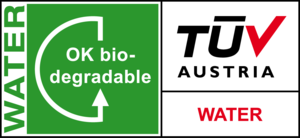Biodegradable plastics
Biodegradable plastics
Biodegradable says something about the biodegradability of the bioplastic.
Traditional plastics from fossil origin (oil) do not completely degrade in the environment. In nature, these plastics break down by the influence of UV light and heat, moisture and bacteria into small particles, the so-called microplastics.
Most of these plastics can be recycled well.
Biodegrable plastics do break down into natural substances such as water, minerals and natural gases (such as CO2). This breaking down is done by a combination of heat, moisture and micro-organisms.
How quickly this breaks down depends on the environment and the breakdown process:
- in fresh or salt water
- in the soil (garden soil, forest, sandy soils, clay)
- by fermentation
- by composting at home
- by industrial composting
It is not the case that all biobased plastics are biodegradable. Most biobased plastics are not, but can be recycled excellently, for example.
Biodegradable quality marks



Developments
The market for biobased plastics is developing rapidly. Because the aspect of sustainability is playing an increasingly important role in our society and economy, you see that various manufacturers and suppliers like us are busy finding new environmentally friendly solutions.
Biobased and biodegradable plastics present a major challenge. On the one hand, we are looking for sustainable and environmentally friendly plastics, but where our customers do get the properties that belong to the fossil plastic counterpart.
After all, you want a biobased plastic to be available in color, can be vacuum-formed and can be lasered.
How do we do with gluing? organic glues or not?
How is the storage of biobased plastics going?
These issues concern us now and we are constantly looking for solutions and improvements together with our manufacturers and customers.
With this site we want to initiate the promotion of bioplastics and transfer knowledge and materials


 Nederlands
Nederlands